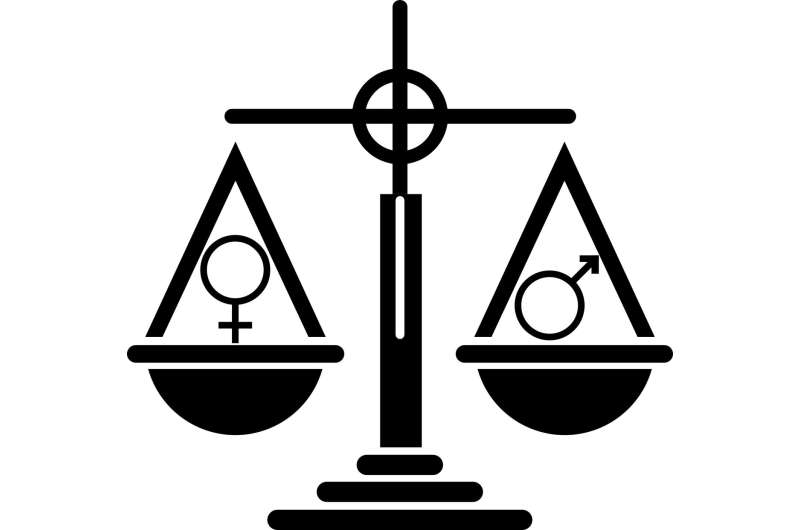
Despite progress in gender equality in sport, ‘structural sexism’ is alive and well in the scheduling of major mixed-sex sporting fixtures, with women’s match finals invariably considered the ‘warm-up event’ for men’s, argue experts in an editorial published online in the British Journal of Sports Medicine.
This not only sends the message that women are second class citizens and athletes, but may also put off women and girls from embracing sports and a physically active lifestyle, they say.
It’s time to end this traditional scheduling as part of a suite of strategies to address sexism in sport, and enable women and girls to realize their full potential on and off the sports field, insist Dr. Klaus Gebel, University of Technology, Sydney, Professor Nanette Mutrie, University of Edinburgh, and Associate Professor Melody Ding, University of Sydney.
Despite substantial progress in women’s participation in sports originally considered ‘men only’ activities, such as football and pole vault, and in equal pay—all four tennis Grand Slam tournaments now offer the same prize money to male and female players, for example—female athletes around the world are still fighting for equality in various aspects of sport, say the authors.
“Structural barriers are ubiquitous, such as sexist uniform mandates, rules that force women to choose between breast feeding and competing, sexual harassment and impropriety against female athletes, and lower representation of women in sports governance, coaching, and journalism,” they write.
The scheduling of sports events is another of these barriers, they suggest, citing previous Olympic Games before Tokyo 2020 and nearly all other mixed-sex sporting events, such as tennis, table tennis, and beach volleyball, where the last two events are the women’s and the men’s finals—in that order.
“These obstacles not only hold female athletes back from achieving their full potential and being celebrated as the pinnacle of their sports, but they might also hold back girls and women around the world from embracing sport and reaping the full benefits of an active lifestyle,” they suggest.
Globally, women are less physically active than men, prompting the World Health Organization to encourage gender equality in sports as part of a strategy to reduce physical inactivity by 15% by 2030, they highlight.
What’s more, women’s sports continue to receive far less media coverage than men’s, with organizers of major sporting events often scheduling men’s events at TV ‘prime time’ or at better venues, they point out.
Better TV coverage generates more revenues which translate into better pay for athletes and more team resources for the sport, they say. Female athletes’ lower visibility perpetuates a vicious cycle of less funding and fewer resources and opportunities, they argue.
A rethink is now needed, say the authors, who call on the International Olympic Committee and all major sports federations around the world that run mixed-sex sports events to implement “one small, yet potentially impactful change”—to alternate the order of the men’s and women’s match finals each year.
This proposal doesn’t entail adding, dropping, or replacing coverage, so wouldn’t affect total viewership, they contend.
But it would send an important message “to girls and women around the world that female athletes are not second-class athletes and women are not second-class citizens,” they write.
“It is time to challenge the gender hierarchy in sport, and to explicitly and proudly demonstrate that the achievements of female athletes are as valued as those of male athletes,” and enable girls and women “to cultivate their full potential on and off the sports field,” they write.
This will require long-term commitment from many different stakeholders across the sector, including sports bodies, the media, the legal profession and the community at large, they say.
“We hope that through improving the visibility of women’s sport, as one component in a suite of strategies to address sexism in sport, we can advance social norms and improve the resources and opportunities for girls and women,” they conclude.
More information: Another step towards gender equality: a call for ending structural sexism in the scheduling of sports events, British Journal of Sports Medicine (2022). DOI: 10.1136/bjsports-2021-105379
Citation: End sexist scheduling of major sporting events to boost gender equality, urge experts (2022, August 30) retrieved 12 September 2022 from https://medicalxpress.com/news/2022-08-sexist-major-sporting-events-boost.html
This document is subject to copyright. Apart from any fair dealing for the purpose of private study or research, no part may be reproduced without the written permission. The content is provided for information purposes only.
Note: This article have been indexed to our site. We do not claim legitimacy, ownership or copyright of any of the content above. To see the article at original source Click Here













